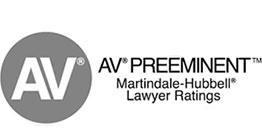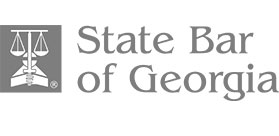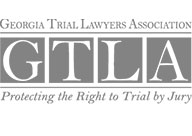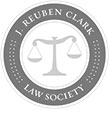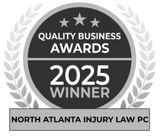What Qualifies as Nursing Home Negligence in Milton?
Placing a loved one in a nursing home requires an immense amount of trust. You expect the facility and its staff to provide attentive, compassionate care. When you start seeing things that shake that trust—unexplained bruises, a sudden withdrawal from family, or a noticeable decline in hygiene—it’s natural to feel a surge of anger and confusion.
Are you overreacting? Is this just a normal part of aging?
In many cases, the answer is no. Nursing homes in Georgia have a legal responsibility to provide a specific standard of care, and when they fail to meet that standard, it may constitute negligence. Your suspicions are very likely valid, and they could be the key to protecting your family member from further harm and holding the institution responsible.
If you believe a loved one has been injured in a Milton-area nursing home, our experienced Milton nursing home negligence attorney at North Atlanta Injury Law is ready to help you get answers and understand your legal options. For a no-cost, confidential discussion about your concerns, call us at (770)988-4000.
Milton Nursing Home Negligence Guide
- What Qualifies as Nursing Home Negligence in Milton?
- Key Takeaways for Milton Nursing Home Negligence
- Why Families in Milton Trust North Atlanta Injury Law
- What Are the Common Signs of Nursing Home Negligence?
- What Standard of Care Are Georgia Nursing Homes Required to Meet?
- Understanding Compensation in a Nursing Home Negligence Claim
- Nursing Home Deficiencies in Milton and North Georgia
- What Should You Do Now to Protect Your Loved One’s Case?
- Frequently Asked Questions About Nursing Home Negligence Claims
- Let Us Be Your Family’s Advocate
Key Takeaways for Milton Nursing Home Negligence
- Signs of negligence are subtle but serious. Watch for bedsores, frequent falls, emotional withdrawal, and poor hygiene—these are early red flags of inadequate care.
- Understaffing is a major issue in Milton nursing homes. Georgia ranks among the worst states for staffing levels, directly impacting resident safety and increasing the risk of neglect.
- You can take legal action without risking retaliation. State law protects your loved one if you file a complaint or lawsuit, and strong documentation can help prove the facility failed in its legal duty.
Why Families in Milton Trust North Atlanta Injury Law
When you’re up against a large nursing home corporation, you need a legal team with the experience to hold them accountable. At North Atlanta Injury Law, we have a record of securing justice for families just like yours.
Our Record Speaks for Itself:
- Proven Results: Our founder, Travis Little, was one of the lead attorneys in a landmark $43.5 million wrongful death verdict in Georgia. This result demonstrates our dedication to pursuing the full measure of justice for our clients.
- Deep Experience in Georgia Courts: We have litigated cases against major corporations and their insurance companies, including Allstate, State Farm, and Marriott. We prepare every case as if it will go to trial, signaling to the opposition that we are ready for a fight.
- Peer-Recognized Ability: Travis Little holds an “AV – Preeminent” rating from Martindale-Hubbell—the highest possible rating for legal ability and ethical standards—and has maintained it since 2014. He has also been named a SuperLawyers “Rising Star.”
Our Commitment to You:
- Direct Attention: You will work directly with our team. We believe clear and consistent communication is the bedrock of a strong attorney-client relationship.
- No Upfront Costs: We handle nursing home negligence cases on a contingency fee basis. This means you pay no attorney’s fees unless we secure compensation for you. Your initial consultation is always free.
- Focused Knowledge: Our practice is centered on personal injury and wrongful death litigation. We have spent years helping families through these incredibly difficult situations.
We serve clients throughout the Milton and North Fulton County area.
What Are the Common Signs of Nursing Home Negligence?
Neglect in a nursing home often occurs away from the public eye and starts subtly. Your attention is your loved one’s greatest defense. Here are some of the common signs that may point to a problem.
Physical Indicators of Neglect or Abuse
- Bedsores (Pressure Ulcers): These painful wounds are almost always preventable with proper care, like regularly repositioning a resident. The appearance of advanced-stage bedsores is a serious warning that a resident’s basic needs are being ignored.
- Frequent Falls and Unexplained Injuries: While a single fall might be an accident, a pattern of falls could indicate a lack of supervision, unsafe facility conditions, or improper assistance. Bruises, sprains, or fractures without a clear explanation demand a closer look.
- Malnutrition or Dehydration: Sudden weight loss, pale or dry skin, and chapped lips can be signs that your loved one isn’t receiving enough food or water. These conditions can lead to a host of other medical complications, including weakness and confusion.
- Poor Hygiene: Soiled bedding, dirty clothes, or a persistent odor of urine or feces may show that basic hygiene tasks are not being performed.
Emotional and Behavioral Changes
- Sudden Withdrawal or Fear: If a resident who was once social becomes quiet, non-communicative, or seems afraid—particularly around certain staff members—it could be a reaction to emotional or physical abuse.
- Unexplained Agitation or Anxiety: A resident who is suddenly agitated, confused, or displays other sharp personality changes may be reacting to mistreatment.
Environmental and Staffing Red Flags
- High Staff Turnover: A revolving door of staff members can lead to inconsistent and poor-quality care. It is frequently a symptom of a poorly managed facility.
- Unresponsive Staff: If your questions are brushed aside or calls for help go unanswered for long stretches, it suggests the facility is understaffed or its employees are not properly trained.
- Medication Errors: Look for signs of overmedication, such as drowsiness and confusion, or undermedication, like a worsening of a treated condition.
What Standard of Care Are Georgia Nursing Homes Required to Meet?
In Georgia, nursing homes are not just expected to be helpful; they are legally required to provide a specific level of care. This is known as the “standard of care.” Simply put, it’s the level of skill and attention that a reasonably careful healthcare provider would offer under similar circumstances.
This is a legal duty defined by state and federal laws, including the Georgia Bill of Rights for Residents of Long-Term Care Facilities. This law guarantees residents the right to receive adequate and appropriate care, live with dignity, and be free from abuse and neglect.
When a facility fails to meet this standard—whether through understaffing, inadequate training, or simple carelessness—and a resident is harmed as a result, that failure is negligence.
Understanding Compensation in a Nursing Home Negligence Claim
While no amount of money can erase the harm your loved one experienced, a successful claim provides the financial resources needed for their recovery and holds the facility accountable for its failures.
In Georgia, compensation typically falls into three categories:
- Economic Damages: These are the direct, calculable financial losses your family has shouldered.
- Medical Bills: The cost of doctors, hospital stays, and any other medical treatment needed to address the injuries.
- Future Medical Care: The projected cost of ongoing rehabilitation, therapy, or specialized long-term care.
- Out-of-Pocket Expenses: Costs for items like prescription medications or necessary medical equipment.
- Non-Economic Damages: These compensate for the human losses that don’t have a clear price tag.
- Pain and Suffering: For the physical pain and emotional distress the resident endured.
- Loss of Enjoyment of Life: Compensation for the resident’s reduced ability to participate in and enjoy daily activities.
- Punitive Damages: In cases where the facility’s actions showed willful misconduct, malice, or a conscious indifference to the consequences, Georgia law allows for punitive damages. These are not designed to compensate for losses but to punish the wrongdoer and discourage similar behavior from happening again.
Nursing Home Deficiencies in Milton and North Georgia
Even in an area known for its high quality of life like Milton, local nursing homes are not exempt from the nationwide challenges of understaffing and substandard care. Georgia has specific laws to protect elderly residents, but violations are still common.
Data from ProPublica’s Nursing Home Inspect tool shows that many facilities in Georgia have been cited for deficiencies related to resident care, safety, and staffing. Some of the most frequently cited issues in our state include:
- Failure to prevent and treat bedsores.
- Failure to provide adequate supervision to prevent accidents.
- Errors in medication administration.
We see cases that originate in facilities all over North Fulton County. A facility’s inspection history and past violations are key to building a strong case. Our firm knows how to obtain these records and use them to show a pattern of negligence.
How Do These Issues Arise?
1. Many facilities fall short on serious safety standards.
ProPublica’s Nursing Home Inspect tool shows that, as of late 2025, Georgia has 356 licensed nursing homes, and 62 of them have received serious deficiencies—issues that threatened residents’ health or safety. That’s about 1 in 6 homes.
2. Staffing levels remain dangerously low.
Georgia ranks 4th worst in the U.S. for nursing home staffing levels, according to reporting by WTOC. Homes barely meet federal minimums—on average, residents get 3.53 care hours per day, just above the required 3.48 hours.
A separate analysis from WJCL found Georgia to be the third worst state nationwide for senior care staffing, with among the lowest ratios of nurses to occupied beds.
3. Understaffing affects daily care and accountability.
AARP data reports that only one-third of Georgia’s nursing homes rate above average on inspection visits, with understaffing frequently linked to neglect and poor outcomes.
Georgia Health Care Association data suggests the state would need 3,652 additional nursing staff to meet new federal staffing mandates—a cost estimated at $187 million annually. Many facilities still don’t meet current requirements.
What Should You Do Now to Protect Your Loved One’s Case?
While we manage the legal process, there are several steps you should take to help strengthen the claim.
- Document Everything: Keep a detailed journal of your observations. Write down the dates and times you saw signs of poor care, the names of staff members involved, and specific injuries or changes in your loved one’s condition. Take clear photos of any visible injuries or unsanitary conditions.
- Follow All Medical Advice: Make sure your loved one is following the treatment plan laid out by their doctors. This demonstrates that the injuries are being taken seriously.
- Keep All Paperwork: Organize all related documents, including medical bills, pharmacy receipts, and any written communication you’ve had with the nursing home.
- Avoid Discussing the Case: Do not speak with the nursing home’s insurance adjuster or give a recorded statement without your attorney present. It is also wise to avoid posting any information about the situation on social media.
Frequently Asked Questions About Nursing Home Negligence Claims
How long do I have to file a nursing home negligence lawsuit in Georgia?
In most situations, the statute of limitations for a personal injury claim in Georgia is two years from the date of the injury. However, the timeline can be affected by several factors, so it is best to consult with a Milton nursing home negligence attorney as soon as you suspect a problem.
Can I report the suspected abuse to a state agency?
Yes, and you should. You can file a report with Georgia’s Department of Human Services, Division of Aging Services or the state’s Long-Term Care Ombudsman Program. Filing an official report creates a record of your concerns and can trigger a state investigation, but it does not prevent you from also pursuing a civil claim for compensation.
What if my loved one has dementia or cannot communicate what happened?
Don’t worry, this is common, and there is still a path forward. We can build a strong case based on other evidence. We rely on medical records, testimony from family and other visitors, and the analysis of independent medical experts who review the records to establish how the standard of care was breached.
Will filing a lawsuit get my loved one kicked out of the nursing home?
It is illegal for a nursing home to retaliate against a resident or their family for filing a complaint or a lawsuit. Georgia law specifically protects a resident’s right to voice grievances without fear of reprisal. If a facility attempts this, we can take immediate legal action to protect your loved one.
What is the difference between negligence and abuse?
Negligence is typically a failure to provide the proper standard of care, such as not turning a resident to prevent bedsores. Abuse involves an intentional act meant to cause harm, like physical violence or emotional mistreatment. Both are grounds for a lawsuit, but a case involving intentional abuse may also lead to criminal charges.
Let Us Be Your Family’s Advocate
You placed your trust in a facility, and that trust was broken. Let us help you hold them accountable. The team at North Atlanta Injury Law, including our experienced Milton personal injury lawyer, is here to listen and provide the clear guidance you need during this difficult time.
Contact us today for a free, confidential consultation at (770)988-4000.
North Atlanta Injury Law PC – Milton Office
Address: 12610 Crabapple Road Suite 201 Milton, GA 30004
Contact No: (770)988-4000


